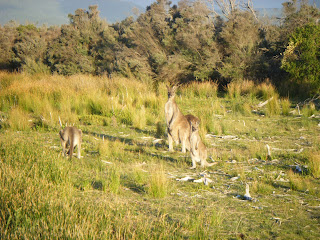Yesterday’s spectacular opening ceremony to the 2010 Commonwealth Games helped to allay weeks of organisational concerns and provide some assurance that maybe, just maybe, Delhi will be able to host a tournament worthy of the city’s rich cultural history.
Despite a GDP of approximately $US 1.2 trillion (approximately one hundred billion dollars higher than Australia, which of course has substantially fewer people), India is still a desperately poor nation with an estimated 42% of the nation’s 1.1 billion inhabitants falling below the international poverty line.
With this in mind, is it right for a developing nation to hold an international tournament when the money could be better used aiding the nation’s impoverished masses? Or will the immediate gain from increased tourism and new job opportunities, as well as the long-term prestige of being only the second nation in Asia to host the games be a financial boon for India?
Holding such an event has so far proved a costly exercise for Delhi. While initial costings for improvements to the sporting infrastructure were estimated at a $US 358 million investment, this amount has long-since been surpassed with the bill expected to reach $US 2.5 billion, excluding non-sporting infrastructure and doubtlessly hefty security costs. On this basis it therefore seems unlikely that the costs will be recouped in the immediate future, and the extent to which the sporting facilities will be used after the Games remains to be seen.
With an international event of this scale likely to result in a long-term financial burden, questions must therefore be asked of the Commonwealth Games Federation’s decision to choose Dehli’s bid ahead of better-equipped Canadian city Hamilton, Ontario and the extent to which it conducted proper assessment of Dehli’s ability to host the event. With more stringent conditions placed on cities bidding to host the Olympic Games, including the requirement to conduct a test event a year in advance, it may be argued that a similar approach should be taken by the Commonwealth Games Federation.
In the absence of such conditions, the progress of Dehli’s sporting facilities had been largely unknown until early 2010.
It must be appreciated, however, that without giving countries with a less-remarkable sporting heritage the chance to step up and hold a major tournament, it is unlikely that international sporting events will ever truly become ‘global’ (granted, of course, that participation in the Commonwealth Games is limited to the 71 countries with membership to the Commonwealth Games Federation) and will instead remain the preserve of western nations with a strong history of achievement in these events.
This aspirational mentality is not limited to the Commonwealth Games Federation. In recent years we have seen a move away from major sporting events being awarded to nations with a track record of being able to host events towards giving the tournaments to nations with the sincere hope that the prestige and ambition will help spark greater interest in the sport domestically and provide a sporting infrastructure for future generations.
This year South Africa became the first African nation to hold the FIFA World Cup. Similar concerns over the pace of South Africa’s preparations to hold the world’s biggest soccer tournament were extinguished with a spirited and colourful tournament. Whether any of the ten stadia that were either constructed or refurbished to meet FIFA regulations will prove to be ‘white elephants’, surplus to the requirements of the sporting public in areas such as Polokwane, Rustenburg and Nelspruit, will be known only in time.
Concerns have also been expressed over the decision of UEFA, European soccer’s representative body, to award the 2012 European Championships to Poland and Ukraine due to shortcomings in Ukraine’s preparations for the event. With the aftershocks of the Global Financial Crisis still being felt across the continent, the pressure to improve facilities in Lviv, Donetsk and Kharkiv will be an unwelcomed burden for the Ukrainian FA.
Looking ahead, the decision to award Brazil the 2014 World Cup and Rio the 2016 Olympic Games will no doubt provoke apprehension among journalists around the world in the lead up to the events on whether Brazil, itself home to mass poverty, crime and other social issues, is able cope with two major tournaments. Though I imagine typical Brazilian colour and charm will help to ease such fears in much the same way South Africa wooed its visitors.
My own take on this, while I would not agree that representative bodies should continually take the ‘safe option’ of giving major events to European and North American nations with the pre-existing social and sporting infrastructure and track record of hosting major events, necessary consideration must be made whether a city or country is ready for the financial and social commitment required to provide the backdrop to a sporting event that will remain in people’s memories for years to come.
With criticism of the condition of the Games Village, the withdrawal of notable athletes, a slow start in attendance numbers at various events and lingering security concerns, I fear that the current Delhi games could be remembered for all the wrong reasons.



























